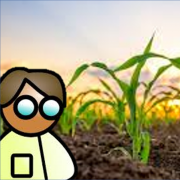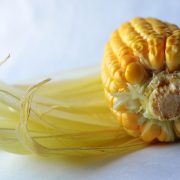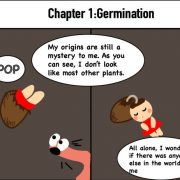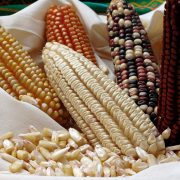Informational Interview with Emily Millar, USDA lab technician
By Samantha Connolly, Conviron Scholar
Emily Millar is a biology laboratory technician. Emily works in a USDA carrot breeding lab at the University of Wisconsin, Madison on two main projects: breeding carrots for higher pigment color and breeding carrots for higher salt tolerance. This is Emily’s first job since graduating from the University of Vermont with degrees in Plant Biology and Biochemistry. We discussed her progress of finding a first job in her field, her perspective on working as a laboratory technician, and how her experiences have shaped her goals for the future.
Where are you from? What did you study in college?
I’m from Vermont, in a tiny town called Barton. I attended the University of Vermont, where I majored in Plant Biology and Biochemistry, and minored in Soil Science. I started out as a Biochemistry major, because I was interested in the overlap between biology and chemistry. After taking my first Plant Biology class, Plant Systematics, I realized that I wanted to dive into Plant Biology. Soil Science seemed like a natural complement to Plant Biology.
Can you tell me about your job-searching process?
I was very lucky with my process – this was actually the first job that I applied for. I found out about it through a website called USAjobs which sends out email notifications. There are very short windows for applying (about 5 days). If the employer is interested, they will contact you. I was okay with moving to a new state, which opened up my options. I think the two main reasons that I got this job are that I was a double major and that I had varied experience. I had worked in both a laboratory and on a farm.
What do you do in your current job as a laboratory technician?
On a day-to-day basis, I’m involved in a variety of tasks because I help with all the projects in the lab. That could include harvesting carrots in the field, cleaning carrot seeds, processing carrots for pigment analysis, and more. Overall, my projects in the lab are breeding carrots to have higher pigment color so that the color can be used as source of natural food coloring and improving the salt tolerance of carrots.
How does your college experience help you in your current job?
My experiences working in a Plant Biology lab in college definitely prepared me well. I completed a thesis about how salt and Abscisic acid affect the legume-Rhizobium symbiosis. Studying soil science involved a lot of field work, which is really helpful now that I do field work in my current job.
What do you enjoy in your current job?
It’s nice to have a mix of both field work and lab work! Seeing how the carrots are grown in the field is pretty interesting. My favorite part of my job is that I get to make “carrot smoothies” for pigment analysis, and they are beautiful colors!
What have been some challenges in your current job?
At first, I was only involved in basic tasks. For the first few weeks, I cleaned carrot seeds all day. Eventually, I reached out to a senior coworker and asked if I could do something different to mix it up. Eventually I had a conversation with my supervisor to ask what I would be more directly involved in, and now I’m doing more interesting tasks. My advice is to be proactive if you’re not enjoying the initial, boring tasks. Just communicate with your supervisor!
What are some of your long-term goals?
I do change my mind sometimes, but currently I am looking into a Master’s program in Plant Breeding. Perhaps I’ll end up working for a seed company, developing new vegetable varieties, doing independent breeding, or working in a university lab.







